Levi RogersThere’s something special about following a band for over a decade—especially if you started listening to that band in your youth—as the discography of the band starts to layer itself over your own life, mirroring and sound tracking distinct experiences, moods, and entire years. You grow up with this band, or they grow up with you perhaps. The band is there with you through deaths, graduations, births, marriage, divorce; your embrace and/or loss of certain religions, philosophies and ideologies. Sometimes the band itself stagnates, as you might feel your own life has, and you listen to their early work in search of nostalgia. Other times a band progresses to a point that their later work sounds nothing like their early stuff. They have evolved and you have also evolved. You have both aged together. And even if you’ve never met them, it’s like you know them intimately, like an old friend, despite the fact that it’s a mostly one-sided relationship. I was a teenager when I began listening to Pedro the Lion, originally turned onto the band by my cooler-than-he-should-have-been high school teacher Mr. Otteson, who knew I liked Indie music and also knew that I was Christian and so burned me my first mixtape CD of Pedro when I was seventeen. I listened to Pedro the Lion in Colorado and where I grew up and in Oregon and Utah where I later moved. The bands evolution from an indie-band with Christian-ish spiritual leanings to full on agnostic, self-deprecating critique on American culture mirrored, in a way, my own spiritual journey through multiple states and frames of mind. A few months ago I found myself at a Pedro the Lion reunion concert in Salt Lake City, Utah, twelve years later, about to turn thirty, about to become a father, hearing them in a completely different context of life. The band did not disappoint and neither did David Bazan, the lead singer and driving force behind Pedro. “I’ve been writing and singing about toxic religion, toxic masculinity, and toxic capitalism for the last twenty years. And it seems, uh, particularly apt right now,” Bazan said about halfway through their set halfway through the year of 2018. I had a whiskey in one hand and a Coors in the other, standing there with my friends Lucas and Mike. I shouldn’t have really been at the concert. My wife was due with our first kid, six days away from her due date and the doctor said she could pop any day. But there I was. And it makes sense that I was there. To hear the band live once again before I became a father was like the resolve of a narrative loop I never knew needed to be tied up. Full circle. Bazan’s statement on toxicity this night seems to echo as both a prophetic, “I told you so,” in the year of 2018 and also as an exasperated plea that despite his and other’s warnings about these toxic elements in our culture, it’s like people are just now starting to pay attention. Bazan’s lyrics covering these toxicities of American culture are a main reason why I’ve been a fan of the band since high school, why I’ve followed his music post-Pedro into his solo recordings. His songwriting has always balanced atop this knife’s edge of deep realism (or cynicism, pessimism, and fatalism depending where you personally find yourself) with lyrics like the resounding “It won’t be all right” from the chorus of the song “Bands with Managers,” or the biting critique of consumerism and advertising in “Penetration”: “All of the experts state you got to start them young/that way they’ll naturally love the taste of corporate cum.” And then there’s this disturbing soliloquy from a priest in the song “Priests and Paramedics”: “But he himself had given up So instead he offered them this bitter cup: “You’re gonna die We’re all gonna die Could be twenty years could be tonight And lately I have been wondering why We go to so much trouble To postpone the unavoidable And prolong the pain of being alive.” You know, pop singles kinda shit. It was the sort of depressing, melancholic music that soothed my existentially anguished soul in my twenties. And coming from a guy who used to be a Christian! But it was also about something more. The first-person storytelling looked outward to society as much as inward. As much as Pedro/Bazan was full of songs that were interior and spiritually seeking, the music was also full of social critique. Pedro the Lion originally started as a band in the state of Washington in the mid-nineties at the dawn of the indie-rock movement, much of which was coming out of the Pacific Northwest—Death Cab, Damien Jurado, Modest Mouse, and Elliot Smith. While the band has included multiple members, including mainstays T.W. Walsh and Casey Foubert, Bazan is by and large the main engine behind the band—though both Foubert and Walsh have contributed to many Pedro songs. What initially set Pedro the Lion and Bazan apart was the way in which they carved a niche following of people largely made up of those who had grown up in Evangelical subcultures and one day found this faith wanting—with little room for doubt or room to voice skepticism. Bazan’s early recordings were, for many of us who had grown up in the Evangelical church, the first true expression and admission of doubt and disbelief we heard. His honest struggle and search for authenticity within this system of faith was something new. For once in our lives we felt okay in our despair, our struggles with faith, God, and a seemingly unresponsive and cold world. His song “Secret of the Easy Yoke” perhaps exemplified it best: “I could hear the church bells ringing They peeled aloud your praise The members faces were smiling With their hands outstretched to shake It's true they did not move me My heart was hard and tired The perfect fire anoint me I could not find you anywhere” Bazan’s early albums were Psalm-like in their despair. In albums like It’s Hard to Find a Friend and Winners Never Quit Bazan sings about big trucks, bad diary days, and what happens when bad things happen to good people. Bazan’s voice is not yet grizzled and maintains an earnestness that doesn’t exist on later albums. His songwriting soon forayed into various depressing first-person accounts of a couple on the beach talking about divorce, a woman jumping off a hospital after she’s given birth, a re-telling of the prodigal son story, and songs about capitalism, communism, marriage, and death. Pedro the Lion’s seminal album was Control, a concept album about a businessman having an extramarital affair, amongst themes of consumerism and vengeance, followed by the *slightly* more uplifting Achilles Heel. Pedro the Lion broke up in 2006 as Bazan went solo. His lyrics turned more outward, hopeless, and political. His first solo album includes a feud track with the music site Pitchfork, “Selling Advertising.” Bazan’s first-full length solo album Curse Your Branches is basically a break up album with God—one that proved particularly painful for me to listen to as I was going through a similar spiritual process. His second album, Strange Negotiations, took issue with right-wing political ideologies and the propensity of working class Americans to keep voting for the hand that chokes them. Bazan’s quest for authenticity and giving no fucks has probably cost him some popularity and status. But that doesn’t negate the fact that Bazan was writing about rape culture and male entitlement long before the #metoo movement in the song, “Backwoods Nation,” and “A Mind of Her Own.” He wrote about right-wing nationalists selling out God in favor of political favor, low prices, and capitalism long before Donald Trump won 81% of the evangelical vote in his album Strange Negotiations. He wrote about profits over people in his seminal album Control before the crash of 2008. Bazan is a deadly serious Father John Misty without the irony and sarcasm. Similar in content and style to Sufjan Stevens. But Bazan’s songs are heavy. They do not have the whimsy of Sufjan or the layered sarcasm and wit of Misty (though Sufjan’s last album Carrie and Lowell, was quite dark). As much as Bazan might employ first-person storytelling techniques within his songs, there is no obfuscation or running away from the stark reality of life as painted by him. Yet Bazan serves as a reminder that people have been ringing the bell to alert us to these current, and deadly, American crises for many years. My daughter was born the night after the Pedro the Lion concert. Wednesday, May 23rd. It was a surreal, intense, and euphoric couple days. The morning after the concert my wife went into labor and so we headed to the hospital around 12:30 in the afternoon. We checked into Labor and Delivery at St. Mark’s and were surprised to discover that the baby had turned breech over the weekend. Head down for nearly two months and now she had flipped. Little stinker. The doctor called for a caesarean immediately. We were having baby. This afternoon. Before dinner. We thought about trying to flip her naturally but it was a good thing we didn’t because when she finally came out, her umbilical cord was wrapped twice around her neck which would have made it almost impossible to do so.
I watched the whole procedure in the operating room. How they sliced into my wife. Clamped her stomach. Pulled the baby out. Purple and red and black. The constant tinkling of metal instruments. Life is funny like that. Sometimes you’re at a Pedro the Lion concert, mourning the very concept of existence, and other times you are in a hospital, celebrating it. I often question why it is we even have children. To raise children is a selfless act but to have them in the first place is a selfish one. To create a human being in your image on an overpopulated world is at least one part selfish. And yet, some of us still have this innate desire to do so. Why? I don’t know. There is a song from the Pedro the Lion album Achilles’s Heel, which has always haunted me, called “I Do.” “The sperm swims for the egg,” sings Bazan. “The finger for the ring. And if I could take one back. I know what it would be.” I thought for sure that would be me one day. Married, unhappy, raising a kid to live vicariously through. Fortunately, today at least, I can say that this specific character in the song is not me. I am not particularly happy with life, but I am content in marriage and excited for fatherhood. I’ve been on anti-depressants for over a decade—which is probably not going to change anytime soon—but I’ve found positive ways to cope and deal with life instead of wasting away into an existential and depressive funk that I try to drink my way out of. My daughter has given me a hope and objectivity I have not known throughout my angsty, highly subjective existential twenties. It’s been over a decade since I discovered Pedro the Lion as a young naive Christian boy in high school. I am now entering fatherhood and my thirties and like Bazan, I’ve grown frustrated with religion and have pretty much left Church for the time being (though I think I still believe in God, for now at least). Like Bazan I’ve spent a lot of time drinking and a lot of time feeling hopeless for humanity—for the darkness in myself and the larger world. I personally thought the culture wars would have died out a long time ago, but if anything, they seem to have reached mass hysteria. I thought the majority of Christians would have bailed on the Republican party with Trump, but no. (I could give a fuck if they vote for Democrats either, at least just acknowledge the lie and hypocrisy you’re buying into.) These Christians who still like to defend “solo scriptura” and man’s authority over women, the life of the unborn, and the patriarchal, nuclear family, but will bypass those parts in the Bible about widows, orphans, refugees, and the vulnerable because it doesn’t suit their current political views. Unfortunately, many Christians today have decided that an unborn life is more important than a black or brown, refugee or immigrant life. The thought of bringing a child into America in the year of 2018 is slightly terrifying. What awaits us in the future? Nuclear war? An authoritarian state? Civil war? The complete sell out of Jesus’ teachings? My daughter will be three-quarters white and so probably have nothing to worry about, but it makes me sad that I can’t say the same for others. The toxic prophecies of America as sung by Bazan have come true and though I am not surprised, I am still depressed about it. So perhaps my daughter will be raised in an age where sexual harassment and rape culture have become rarer. Perhaps men will become better men. Perhaps Evangelical Christians will wake up from their Donald Trump infused hysteria and their culture wars and start following Jesus, not capitalism and the Republican party. Perhaps we will one day truly value people over profits. True religion over false. Perhaps, but if life is anything like a Pedro the Lion song, the chances are that it won’t be all right. And that’s okay too. “Be kind to one another,” Bazan said as he finished the show that night in May. “Be good to one another.” And for one second, like the lyrics that drew me to Bazan in the first place, it was like Bazan was channeling Jesus himself, giving us a single moment of hope in a cold and frustrating world. 9/5/2018 Summer T.V. RoundupLeviAh, summer. Beaches, camping, hiking, pools, and … T.V. ‘Cause I mean, it’s freaking hot and we all need breaks. So Sam, what T.V. have you been watching lately? How about the end of Season 2 of Westworld? Pretty crazy huh? I for one did not see the crossover of the dinosaurs from Jurassic Park making it into the park of Westworld Universe whilst Jeff Goldblum rides atop their scaly backs and leads a mass slaughter of the town of Sweetwater, jk. Thanks to my newborn daughter I’ve been watching quite a lot of television, some good, some not so good, and a LOT of local news. Don’t ask me how or why. I’ve watched some Archer, season 2 of Legion, was quite hooked on Westworld, and also watched some funny shows like the new season of Arrested Development and Wet Hot American Summer. I gotta be honest though, the two shows that have stood out the most to me are not what I would have thought—Law and Order SVU and the new seasons of Queer Eye. Law and Order SVU Is Law and Order SVU a good show? That’s the question I’ve been asking myself lately as I find myself with a lot of free time to watch television thanks to my newborn daughter. And not the type of television like Legion or Westworld which requires me to think a lot. The type of television where you can sort of fade in and out of consciousness while you watch it, give in to mind-numbing distraction and turn your brain off. I used to hate those types of shows, Seinfeld excluded. I first wrote Law and Order SVU off as a tacky crime drama that was formulaic and cliché, and while the show definitely still has elements of a rather straightforward cable television crime drama, the thematic elements of the show combined with the way it rips off news headlines predicates some fascinating episodes in this cluster of a year in 2018. I mean, sure, SVU might not be able to hang with the serial T.V. greats out there like The Americans, Breaking Bad, Sopranos, Wire, Mad Men, and such, but over the last couple years I’ve gotten increasingly hooked on the cases of Detectives Benson, Rollins, Fin, Carisi, and DA Barba along with the shows willingness to dive headfirst into the violence and mayhem of our current society. I just finished the eighteenth season and watched episodes that dealt with the sexual abuse of Olympic athletes and a woman army ranger, a transgender beating, sexual harassment in the workplace, immigration, and ICE. So what originally started as a “show my wife watched” has now turned into a show we watch together. Law and Order SVU is a strange show because despite the shows brutal plotlines of rape, murder, and sexual assault there is an almost comforting rhythm to the episodes. Most of this is due to the fact that the cases need to be wrapped up in an hour time limit, and while in 90% of cases we see these SVU detectives doling out justice and cracking cases in a quick and efficient manner, there are the 10% of episodes which end in a more, say, realistic manner. Justice is not served. The bad guys get away. I imagine we as a culture like Law and Order SVU because it deals with real threats to society but presents them in a way that is manageable and contained. We know rape, murder, and sexual assault happen through the news and our experience (either personal or by proxy) but in the real world the way these actions play out are often out of our control. SVU is a distillation of these terrible crimes into something cathartic and satisfying. Still the shows gives me pause for a few reasons. Is the vast amount of violence committed against women in this show necessary to watch on screen? Is SVU desensitizing us to the very atrocious acts we encounter in the show? Or is it attempting to deal with real issues through the platform of T.V. and perhaps even help victims of sexual assault in some form of processing? I don’t know. It helps that we have the terrific Mariska Hartgay playing the lead character of Detective Benson. No longer is the show made up of mostly white guys investigating crimes of a sexual nature. Now we have a strong female lead whose very mission in life is to find the to make sure no person who commits crimes of a sexual nature gets away. She believes the victims almost to a fault, except it’s not a fault, because it’s her job and mission to believe, protect, and seek justice for any person who comes through her door. The episode featuring ICE felt particularly prescient as a Syrian man who witnesses a crime is afraid to testify for fear of being deported, same for an El Salvadoran wife of one of the accused. The eighteenth episode ended on quite the downer about how people are now “emboldened” to act in a certain way against immigrants and minorities because of a certain president. I can’t quite binge Law and Order SVU because it quickly makes one think the worst of humanity, filling one’s head with rape and murder before bedtime, but it’s GREAT afternoon daytime T.V. Queer Eye A show that is quite the opposite, one that I also thought I wouldn’t like, is Queer Eye, now with two new seasons on Netflix. The shows holistic approach to fixing up straight men (and a gay man and woman or two) is pure gold. By the time the Fab 5 have done their work on transforming their subject’s food, dress, lifestyle, design, and culture habits you can’t help but smile. Or cry. Literally every episode has a teary moment. Queer Eye works because it is in the business of pulling people out of ruts. We all fall into a rut from time to time after all and Queer Eye is about getting people out of them. Whether it’s in one’s dress, eating, and living habits, or overall outlook on life. As the Fab 5 make their way across Georgia they’re provided plenty of opportunities for cross-cultural interactions. Whether it’s the interaction between black men and police officers or gay culture and the church or loners who feel isolated. Often the show helps its subjects find self-confidence enough to also find love and success in their work and personal lives. Some episodes are a bit silly and surface. Others quite profound. Mainly it’s a joy to see five gay men, all living out perfectly healthy expressions of masculinity, turn their eye upon a subject who doesn’t feel worthy of such adoration and interest, and transform that individual through some of the most positive male interactions ever captured in camera. It’s nice that Antoni, Jonathan, Bobby, Karamo, and Tan are in the business of empathy and self-empowerment as much as they are about the French tuck or dishes made with avocados (I swear, it’s like Antoni thinks Georgians have never encountered avocados before) thus providing some of the most emotional resonant T.V. ever made. Growing up in a conservative evangelical home I almost find myself reverting to old tendencies and thinking that these gay men must also employ sorcery of some kind to make us like them so much. But no, it’s just simple listening and caring. So yes, what I first thought of as a surface reality television show about gay men giving straight men makeovers, has now turned into one of my favorite shows on T.V. What you got Sam? What’s good on T.V. for you? SamMy summer TV: Dude Queer Eye is amazing. Okay. So long story short. The original Queer Eye for the Straight Guy made me really uncomfortable. As a young kid in rural New Hampshire exposed to homophobia as a norm, I witnessed the Queer Eye for the Straight Guy through an imperfect lense. Now, much better educated on LGBTQIA+ rights, I think anyone, even the most stauch homophobe would benefit from this television show. It’s dive into unhealthy routines, repetitions and ruts, as you mentioned, is powerful. I will admit I’m drawn most to Tam, because as the fashion expert, he has the utmost power to tear down the people he works with. Yet, he is incredibly gentle. And coming from a cis man who deals with body image issues I find that impressive. Also is it just me or doe Antoni look like Christian Bale’s son? WestWorld I confess myself disappointed, Levi. I thought the first season, much like the first season of Lost, almost flawless. Character development, especially with the Man in Black, the reveal of non-sequential storytelling, and vision of AI coming to grips with reality was masterful. In season two I have lost interest and given up on the show. Here’s why: Shows that venture outside the sense of reality but aren’t quiet genera shows like Stargate or Game of Thrones often fail to ground us in a setting. WestWorld had an impeccable setting, and through the whole first season the show felt like a train firmly set on it’s tracks. However, this season it feels as if we might shoot off in any direction at any time. Rather than producing the desired feeling of keeping us on our toes, it gives a listless feel to the narrative. The aims of our characters seems loose, as compared to the first season. With the reveal that (SPOILERS) Jimmi Simpson’s character is a young man in black, his storyline lacks a sense of urgency. We all knows he survives, so it’s not a heroic or villanis tale, it’s an educational optic on how he goes from young businessman to evil/anti-hero Man in Black. But we also already got the big “oh no he’s turned from good to bad” in the first season, so where does Simpson’s story go? Don’t get me wrong, I love Simpson. He’s incredible in both It’s Always Sunny in Philadelphia and in House of Cards. Go watch those scenes he’s in. It’s well worth it. Unfortunately, I find the Japanese storyline rather cookie-cutter japanese storytelling, and perhaps a bit racist. Now, I am not a great judge to say whether or not it’s racist, but let me explain. The Japan World is obviously set up to be a theme park, and is written by writers that, as we’ve seen, are white. So the world isn’t meant to be an authentic experience, rather an experience created for people to visit. This makes sense. For so long Hollywood, the book industry, etc. gets Japanese stories wrong. We’re fascinated by them, but ultimately the “honor code” the samurai stories, the writing of Japanese suicides are done poorly by Americans. There is a tangible difference between the tales by Haruki Murakami or Yoshihiro Togashi and American made Japanese stories. So while Japan World in WestWorld is supposed to reflect the poor designs of American writers, it unintentionally backs up stereotypes of Japanese people, Japan, and Japanese history. At least it does from my point of view. I’d love to hear the opinion of someone from Japan or with Japanese heritage. Rick and Morty I’m going to cheat a bit here. I got into Rick and Morty during the fall, and after struggling through the first five or six episodes, I’m fairly convinced this is the best cartoon made for adults out there. Levi, I can’t even begin to express how smart the show is. It handles continuitiy issues in the best way possible, paying close attention to the laws of physics and the rules of time and infinite universes. It takes a while for the show to settle, but once the first Evil Morty episode hits, the series is suddenly different, and good, and maybe even powerful. It’s strange to write that. The show peddles out the normal farts and burps we get in The Simpsons, Family Guy, South Park (and thankfully mostly avoid in Archer). There is constant spittle, sex innudenoes, and the usual pandering to teenagers and college students that inflates merchandise sales. Yet, the show is powerful and--I’ll use a word here I despise--deep. Take the wildly popular episode Pickle Rick. The episode circles around the event that Rick turns himself into a pickle in order to avoid family counseling. Morty’s parent have recently divorced, and his mother, Beth, wants the family to attend counseling. Noticing a syringe filled with serum evidently set up to turn Rick back into a human, Beth takes it as punishment for Rick skipping out on the family venture. While Beth, Morty, and Morty’s sister Summer are monlogued at by the counselor, Rick kills rodents and rats, building himself working limbs in order to save his own life. Most of the screen time of this episode is spent on watching Rick, in a gruesome and terrifying manner, build his rat/insect body, escape the sewers, kill everyone involved in some secret crime escapade and make it for the final minute of counseling, the episode somehow manages to be entirely about family issues, and makes intelligent commentary on children and parents dealing with divorce in a non-dramatic, non-didactic way. It’s a great show. If we did our best TV shows of all time all over again. It’d battle with Parks & Rec, Sherlock, and Archer for top spot. But let’s be honest Levi, the best summer TV show (and by this I mean shows actually released during summer) is... So You Think You Can Dance I am, of course, incredibly super biased. For those Game of Narrative fans who don’t know, I am a breakdancer (funk-style, not B-Boy), and a breakdancing instructor. However, this show still merits a vote for best of summer, and best of all competition shows. In actuality, I hate--no loathe rather--competition shows, with two exceptions, the Merry Berry version of the Great British Bake Off (not it’s current iteration) and SYTYCD. SYTYCD doesn’t sell itself on negativity or elimination. It sells itself off the artistic promotion of a social form of interaction that has fallen away from western culture: dance. SYTYCD employs some of the best choreographers in the world. Mandy Moore, the choreographer often seen on SYTYCD, choreographed all of La La Land. Travis Wall has one of the best contemporary companies in the states. Twitch has become an icon. And many Step Up dancers were hip hopers on SYTYCD. While the Academy and constant switches in format from the show irk me, nothing beats the live show, with group numbers, solos, and duet performances which continue to shock me. Last seasons winner, Lex, is the most impressive dancer I’ve ever seen. It pumps my blood. It makes me want to dance more. It inspires my own creativity. The show is gold. LeviI must admit, I know I should want to watch Ricky and Morty but I’m put off by the fans and everyone talking about how great it is. I’ve watched a few episodes and they didn’t stick, but I want to give it a shot so I promise I will Sam. A few other shows I’ve been watching that are about halfway through the summer season are Master Chef, Yellowstone, and the new Stephen King homage Castle Rock. Yellowstone The new serial drama from Taylor Sheridan, i.e., Sicario screenwriter and the writer/director behind Wind River, Yellowstone is a show that takes place in Montana and deals with issues of water and land rights, urban development, and the conflict between Western ranchers and indigenous peoples. Kevin Costner is in the lead role, and for once, he’s not boring. Partly because he’s playing an abusive father/asshole. I like the show because I like modern, urban, Westerns and also because Yellowstone National Park is my favorite National Park (though this has nothing to do with the show). It’s only seven episodes in and so far it’s a bit slow with random bursts of violence and thoughtful reflections on race, wealth, class, family, and nature and I mostly like it. We’ll see where it ends up. It’s pain to watch because it’s on a new network (Paramount) but I like Sheridan’s work enough that I bought the season for $15. Castle Rock
This new Hulu show is a homage to Stephen King and combines many famous elements of his works to create something new. It’s mostly about a very dark, haunted, and twisted town/prison that makes people go insane. It’s pretty good. Master Chef You know, it’s a cooking show with Gordon Ramsay getting all worked up and Joe Bastianich doing dramatic pauses of who won or didn’t win each category before going to commercial break. |
AuthorOur fabulous blog team Archives
June 2024
CategoriesAll 12 Songs Art Art And Athletes Book Review Chorus Blog Date This Book Game Of Narratives Guest Blog Letter From The Editor Lifehacks Movies Of 2019 Music Pup Sounds Smackdown Strive For 55 Summer Playlists |

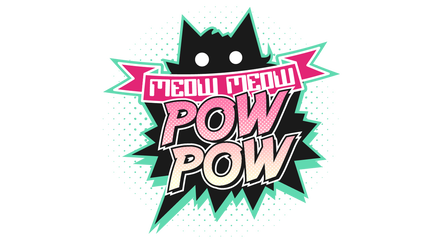
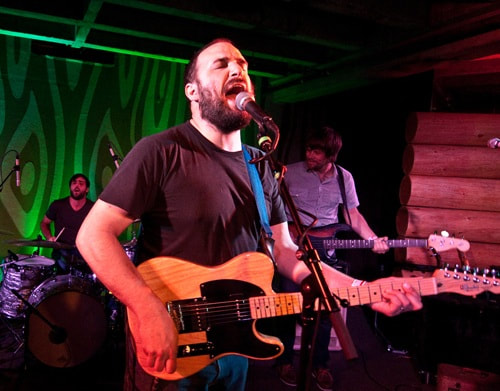
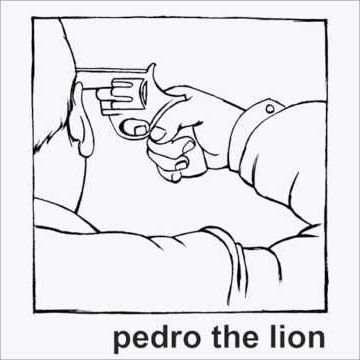
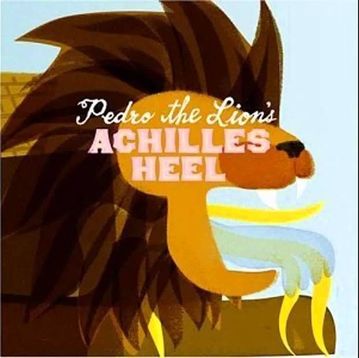
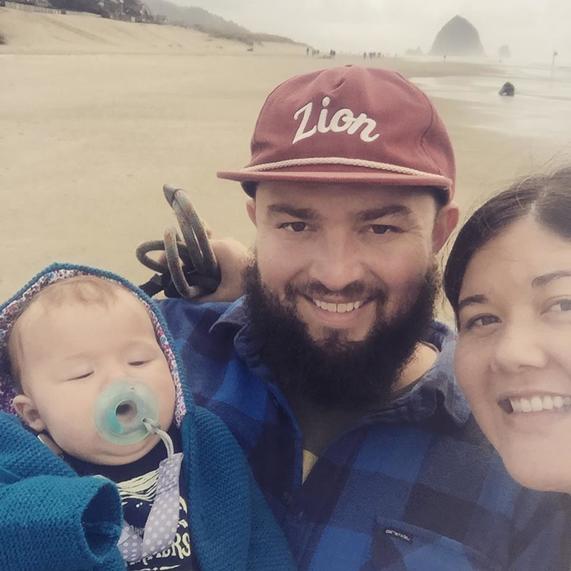
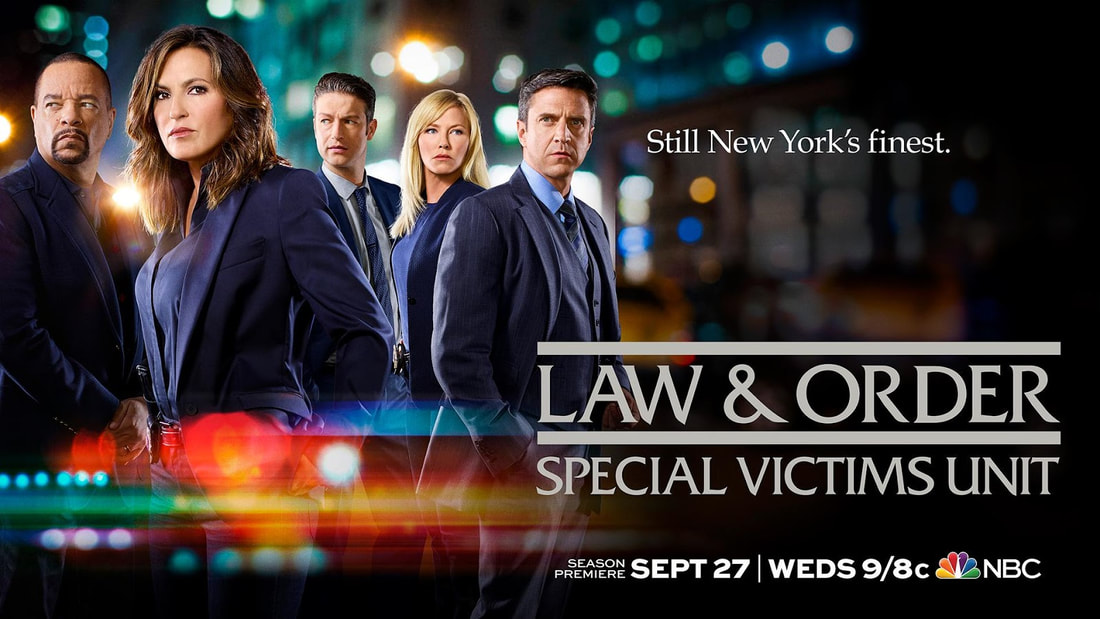
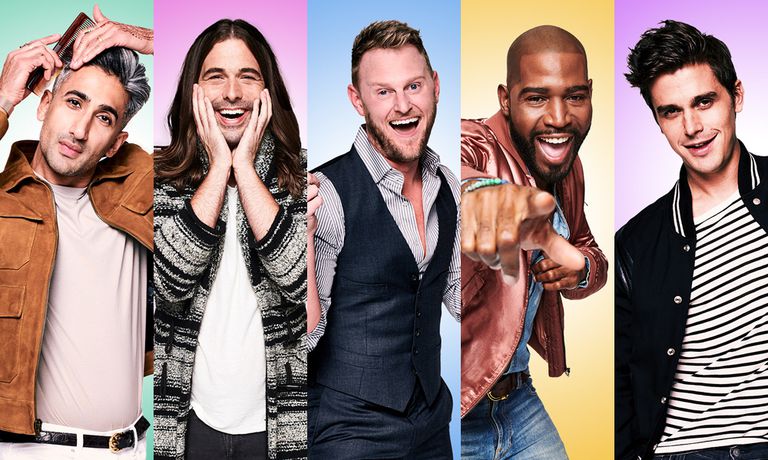
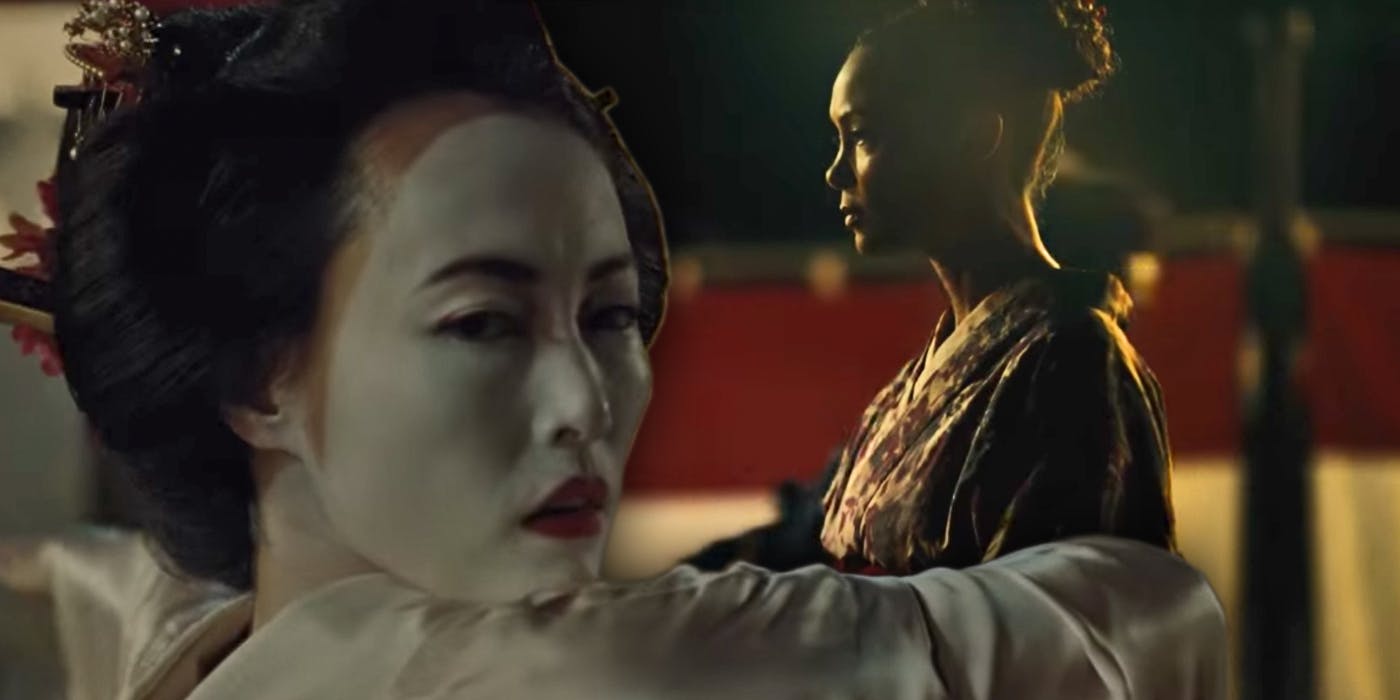
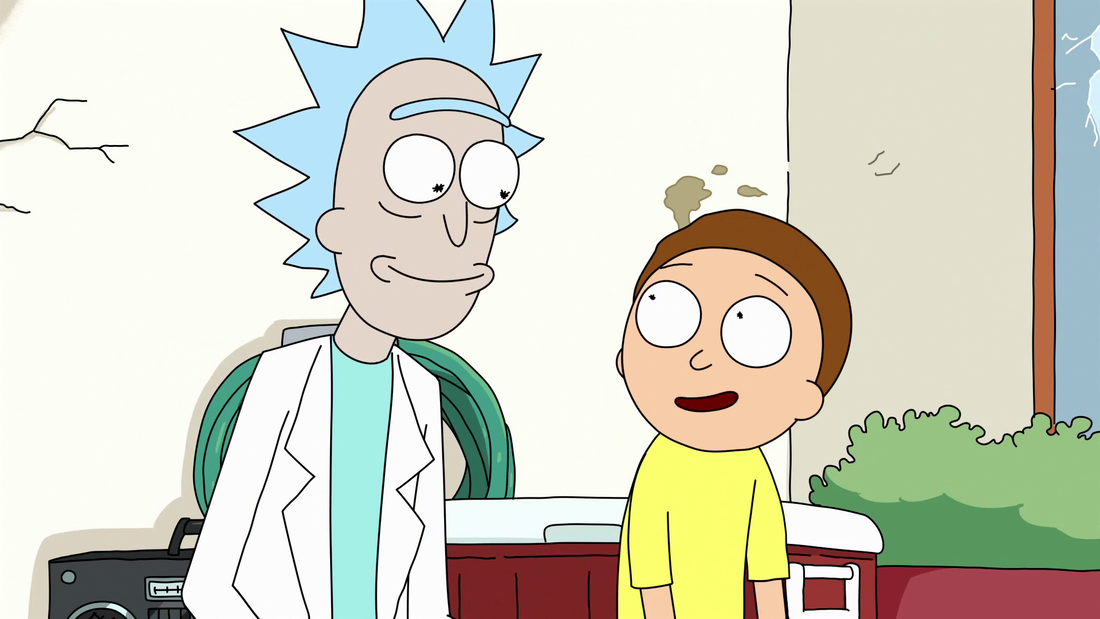
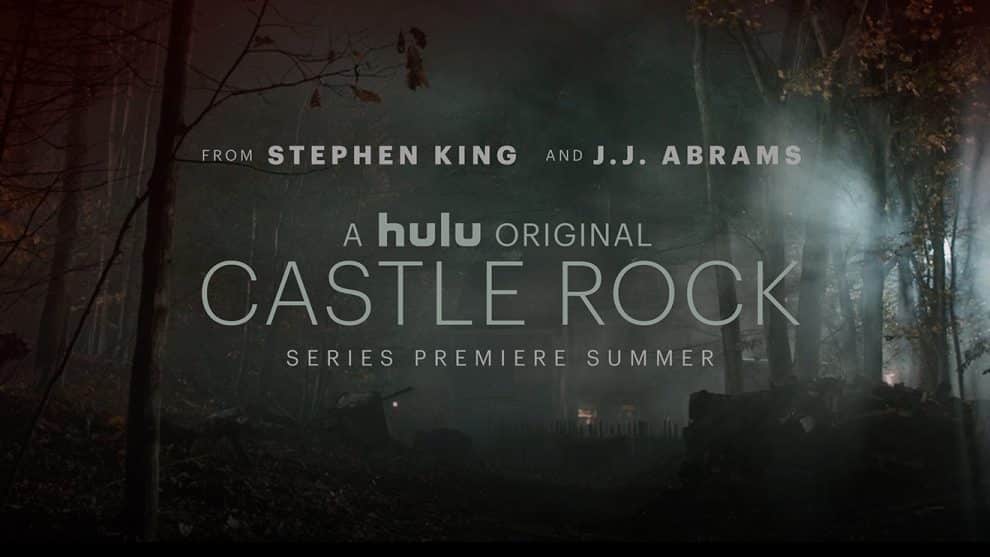
 RSS Feed
RSS Feed